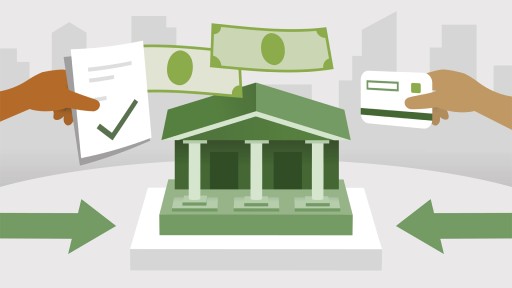Rise by Six: Your Daily Dose of Inspiration
Explore insights and stories that elevate your day.
Banks vs. Budgets: Who Will Win Your Wallet?
Discover the ultimate showdown: Can budgeting outsmart banks? Find out who truly controls your wallet!
Understanding the Role of Banks in Your Financial Journey
Understanding the role of banks in your financial journey is crucial for effective money management. Banks provide a variety of services that can help you achieve your financial goals, such as savings accounts, loans, and investment opportunities. By opening a savings account, you can earn interest on your deposits and start building wealth over time. Additionally, banks offer access to credit facilities, which enable you to finance major purchases, from a new car to a home. These services not only help individuals manage their finances but also play a significant role in the broader economy.
Moreover, banks act as financial advisors, offering guidance on how to best manage and grow your money. Many banks provide resources such as budgeting tools and educational workshops that empower customers to make informed decisions. When it comes to investing, banks can assist in navigating complex options like mutual funds and retirement accounts, ensuring that you choose investments that align with your financial goals. Ultimately, a strong partnership with your bank can facilitate your journey towards financial stability and success.

Budgeting Basics: How to Control Your Spending Effectively
Budgeting basics are essential for anyone looking to take control of their finances. By understanding where your money goes each month, you can create a realistic budget that reflects your needs and goals. Start by tracking your income and expenses for a month. List your fixed expenses, such as rent or mortgage, utilities, and insurance, as well as variable expenses like food, entertainment, and transportation. This will give you a clear overview of your spending habits and help identify areas where you can control your spending effectively.
Once you have a complete picture of your finances, prioritize your spending. Create a budget that includes necessary expenses while allowing for some flexibility in areas that are less critical. You can use the 50/30/20 rule to guide you: allocate 50% of your income to necessities, 30% to wants, and 20% to savings and debt repayment. Regularly review your budget and adjust it as needed—this will not only help you control your spending but also set you up for financial success in the long run.
Banks vs. Budgets: Which One Really Holds the Key to Financial Freedom?
When it comes to managing your finances, the debate between Banks and Budgets is often a hot topic among personal finance enthusiasts. On one hand, banks provide essential services such as savings accounts, investment options, and loans that can contribute to long-term financial stability. However, these tools may not be enough to achieve true financial freedom. This is where budgeting becomes a crucial factor, as it allows individuals to allocate their resources effectively, ensuring that every dollar is working towards their financial goals. A well-structured budget can highlight areas of overspending and encourage disciplined saving, ultimately laying the groundwork for financial independence.
In the quest for financial freedom, it's important to understand that banks and budgets serve different but complementary roles. While banks offer the infrastructure to store and grow wealth, budgets empower individuals to take control of their spending habits. Effective budgeting can significantly reduce financial stress and promote healthier financial decisions. According to many financial experts, integrating a budget into your banking strategy may be the key to unlocking the full potential of your finances. By harnessing the strengths of both, you can create a comprehensive financial plan that leads to lasting prosperity.